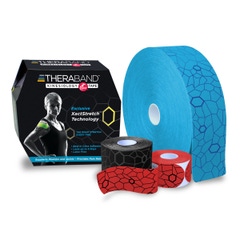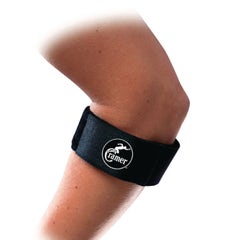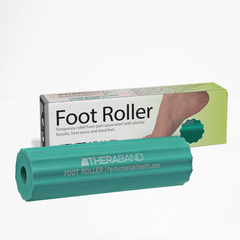Managing healthcare expenses can feel overwhelming, but Health Savings Accounts (HSAs) and Flexible Spending Accounts (FSAs) offer valuable ways to save money while covering eligible medical costs.
Whether you're new to these benefits or just need a refresher, this article breaks down the most common questions about HSA and FSA accounts in a clear Q&A format. From understanding the difference between the two to knowing what items you can purchase, we’re here to help you make the most of your benefits—and your budget.
What is an FSA?
FSA, or Flexible Spending Account, is a pre-tax benefit account used to pay for eligible healthcare or dependent care expenses. It allows individuals to set aside money from their paycheck to cover out-of-pocket medical costs, dependent care, and other health-related expenses. FSAs can help reduce your overall tax burden and potentially save you money on healthcare costs.
What is an HSA?
An HSA, or Health Savings Account, is a tax-advantage savings account designed to help individuals with high-deductible health plans (HDHPs) pay for qualified medical expenses. It allows individuals to save money on a pre-tax basis, with potential tax-free growth and tax-free withdrawals for qualified medical expenses.
What is the difference between FSA and HSA?
HSAs and FSAs are both tax-advantaged accounts used to pay for healthcare expenses, but they differ significantly in how they function.
- HSAs are designed for long-term savings and require enrollment in a high-deductible health plan (HDHP).
- FSAs are typically offered with traditional health plans and have a "use-it-or-lose-it" rule for unspent funds.
Do my FSA funds expire?
Yes, FSA funds are often use-it-or-lose-it, meaning that any unused funds are forfeited at the end of the plan period.
Do my HSA funds expire?
No, HSA funds roll over from year to year and do not expire.
How can I find FSA and HSA eligible items?
You can shop FSA and HSA eligible items with Performance Health by heading to our HSA/FSA Eligible product page; all products on that page have been verified as eligible. Or you can look for the eligibility icon (pictured) on products as you browse. Below are just a few examples of eligible products.
What types of items are eligible for FSA and HSA?
HSA and FSA accounts can be used to pay for what you would typically think of when you think of medical expenses, including doctor visits, prescription drugs, dental care, and over-the-counter medications.
However, there is also a wide range of daily use items that fall within eligible categories. Products like breast pumps, feminine hygiene products, and even certain types of sunscreens. Rehabilitation and recovery supplies would also fall within eligibility. Generally, expenses must be for the "diagnosis, cure, mitigation, treatment, or prevention of disease.”
Examples of eligible expenses:
- Medical Care: Doctor visits, hospital stays, prescription drugs, over-the-counter medications (with a doctor's note, in some cases), vaccinations, physical exams, and screenings like mammograms and colonoscopies.
- Rehabilitation and Therapy Supplies: aids and resources for recovery, such as what you can find with Performance Health, are eligible as medical devices.
- Dental Care: X-rays, cleanings, fillings, sealants, braces, and tooth extractions.
- Vision Care: Eyeglasses, contact lenses, and solutions.
- Mental Health: Therapy, psychiatric care, and treatment for substance use disorders.
- Other Medical Expenses: Acupuncture, ambulance services, artificial limbs, birth control, blood sugar test kits, breast pumps and lactation supplies, crutches, hearing aids, and medical alert bracelets.
- Over-the-counter medications and supplies: Feminine hygiene products, pain relievers, allergy medication, etc.
- Special Needs: Certain special education expenses, like tutoring for learning disabilities, may also be covered with a doctor's recommendation. Many items from our Tumble Forms 2 product line fall within this category.
- Smoking Cessation: Products and programs to help quit smoking are also generally eligible.
- Nutritional Counseling: If it's to treat a diagnosed illness, it may be covered.
- Weight-loss Programs: Certain weight-loss programs may be eligible.
Why isn’t an item I need FSA or HSA eligible?
If you find an item that you believe should be eligible but isn’t, it is important to keep in mind that some products may require a letter from a doctor to be eligible.
Another reason it may not be eligible might be due to the IRS’s specific guidelines on what constitutes a qualified medical expense. It's always a good idea to check their publications or consult with a tax professional for the most up-to-date information.
Always check with your specific HSA or FSA plan provider for their list of eligible expenses, as there may be some variations.
We’ve verified key products for eligibility and are constantly working to verify additional items as eligible.
Are the same items eligible for FSA and HSA?
Yes, all eligible items can be purchased with FSA or HSA funds.
How can I pay for FSA and HSA items?
You can use your plan-issued card to pay for eligible items directly. Only eligible items can be purchased using an FSA or HSA card, so you’ll need to separate any non-eligible items into different orders.
If you don’t have an FSA/HSA card, you can purchase the items with your credit card and submit the receipt for reimbursement.
How do I use my FSA or HSA card?
It should work the same as a debit or credit card. Simply add your FSA/HSA card at check out or to your payment methods in your account.
Have additional questions? Our team is ready to help!
- By live chat – accessible from the bottom right corner of your screen
- By phone – 800.323.5547
- By email – customersupport@performancehealth.com
Medical Disclaimer: The information provided on this site, including text, graphics, images, and other material are for informational purposes only and are not intended to substitute for professional medical advice, diagnosis, or treatment. Always seek the advice of your physician or other healthcare professional with any questions or concerns you may have regarding your condition.








 France
France Australia
Australia














